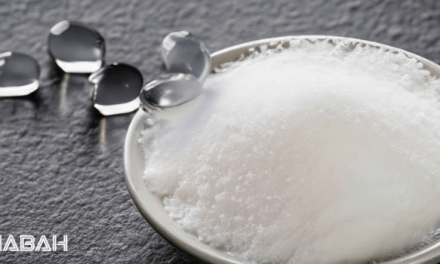Coffee is one of the most widely consumed beverages in the world. But is drinking coffee allowed (halal) or prohibited (haram) according to Islamic dietary laws? This article examines multiple perspectives on the permissibility of coffee in Islam.
What is Halal?
In Arabic, the word “halal” means permissible or lawful. When referring to food and drink, halal indicates that something is allowed for consumption by Muslims. Some key principles of halal foods and beverages include:
- Does not contain pork, blood, or alcohol
- Prepared in a hygienic manner
- Does not cause intoxication
Haram is the opposite of halal, meaning forbidden or unlawful according to Islamic rulings.
Here is a quick comparison of what is typically considered halal vs haram:
| Halal | Haram |
|---|---|
| Fish | Pork |
| Vegetables | Alcohol |
| Fruits | Blood |
| Legumes | Carrion |
The classification of coffee and caffeine has been debated by Islamic scholars. This article analyzes evidence from multiple perspectives on whether drinking coffee should be deemed halal or haram for Muslims.
“O mankind, eat from whatever is on earth [that is] lawful and good and do not follow the footsteps of Satan. Indeed, he is to you a clear enemy.” (Quran 2:168)
Background on Coffee and Caffeine
Coffee is a brewed drink prepared from roasted coffee beans, which are the seeds of the Coffea plant. The key active ingredient in coffee is caffeine, which is a central nervous system stimulant.
- Caffeine occurs naturally in coffee beans, tea leaves, and cacao pods
- Typical caffeine content:
- Brewed coffee: 95-200 mg per 8 oz cup
- Espresso: 60-100 mg per 1-2 oz shot
- Caffeine blocks adenosine receptors in the brain, reducing tiredness
- Common effects of caffeine:
- Increased alertness and focus
- Elevated energy and mood
- Reduced fatigue
- Improved cognitive performance
Coffee consumption has a long history going back over 1000 years, originating from Africa and the Middle East. Today it is one of the world’s most popular drinks crossing many cultures:
“Coffee’s early association in 15th-century monasteries with religious practices gave way in the 16th and 17th centuries to its use as a secular stimulant in the Near East.” – Britannica
Globally over 2 billion cups of coffee are consumed every day. The stimulant properties of caffeine make coffee a regular morning or afternoon ritual for many people worldwide.
Islamic Rulings and Opinions
There are diverging perspectives among Islamic scholars regarding the halal status of coffee and caffeine. Here is a summary of some key positions:
- Majority opinion is that coffee is halal and permissible to drink
- Minority view considers coffee haram due to its stimulant properties
- Caffeine is not deemed intoxicating or mind-altering in moderation
- Coffee has recognized health benefits and is not harmful
Prominent religious bodies and scholars that declare coffee to be halal:
- Cairo’s Al-Azhar University
- Muhammad ibn al Uthaymeen
- Zakir Naik
- Yusuf al-Qaradawi
“According to the School of Shafi’i, most foods and drinks are considered halal unless there is clear prohibition of them in the Qur’an or Sunnah.” Source
A minority of conservative scholars believe coffee should be avoided due to uncertainty over its legal status and stimulant caffeine content. But most experts state coffee is permissible based on evidence of its benefits and lack of harm.
Evidence Coffee is Halal
There are several arguments made in Islamic scholarship that support the halal status of coffee:
-
No clear prohibition in Quran or hadiths – There are no verses in the Quran or teachings of the Prophet prohibiting coffee consumption directly. Other clearly haram substances like pork and alcohol are explicitly forbidden.
-
Not intoxicating – Caffeine does not cause intoxication or significant mind alteration. The stimulation from coffee is mild and does not impair reasoning or judgement.
“Caffeine at normal consumption levels neither intoxicates nor significantly alters the mental state.” Source
-
Health benefits – Coffee has antioxidant properties and numerous associated health benefits, including:
- Lower risk of diabetes
- Protection against heart disease and stroke
- Increased mental alertness
- Neurological disease prevention
-
Part of customs and culture – Drinking coffee is deeply embedded in many Islamic cultures. A complete prohibition would represented a significant cultural change.
The evidence above forms a persuasive case that coffee and caffeine are compatible with Islamic dietary principles and should be considered halal.
Frequently Asked Questions – Is Coffee Halal?
What is the ruling on drinking coffee in Islam?
Drinking coffee and tea is permissible in Islam. It is not considered haram (forbidden) unless it is prepared or consumed in a way that makes it prohibited, such as mixing it with an intoxicant.
Is caffeine halal or haram?
Caffeine itself is not specifically mentioned in Islamic scriptures. Therefore, it is widely accepted that caffeine consumption is halal and permissible as long as it is not extracted from a prohibited source or mixed with an intoxicant.
Are all coffee beans considered halal?
Yes, all coffee beans are considered halal unless they have been contaminated with any substance that is explicitly forbidden in Islam. Therefore, under normal circumstances, coffee beans are halal and permissible according to islamic law.
Can coffee be consumed with other caffeinated drinks?
Coffee is permissible to consume with other caffeinated drinks as long as those drinks are also halal. The halal status of a beverage depends on its ingredients and the method of preparation.
Is coffee permissible only for Muslims?
No, coffee is not restricted to Muslims only. People of any faith or belief system can consume coffee unless they have personal restrictions or health concerns.
Is there any specific type of coffee that is considered halal?
No specific type of robusta coffee is mentioned in Islamic scriptures as being haram or halal. As long as the coffee is free from any prohibited or harmful substances that will cause drunkenness or dizziness, it is considered halal.
What about specialty coffees like Luwak coffee?
Specialty coffees like Luwak coffee halal, which is made from the coffee cherries that have been eaten and excreted by Asian palm civets, are generally considered halal as long as the coffee beans themselves are not contaminated with any prohibited substance.
Are there halal-certified coffee brands?
Yes, there are halal certified coffee brands available in the market. These brands ensure that their halal coffee products comply according to islamic teaching.
Conclusion
In summary, there is a strong basis within Islamic scholarship to state that drinking arabica coffee or caffeine is permitted and definitely halal for Muslims.
The majority muslim scholars opinion holds that coffee does not violate any prohibitions and in fact provides health benefits so is allowed in islam. Caffeine is not deemed to be intoxicating or mind-altering at normal consumption levels.
Key points supporting coffee as halal:
- No clear prohibition in Quran or hadiths
- Not intoxicating like alcohol or drugs
- Provides health benefits as medicine
- Important culturally for Islamic societies
A minority of strict scholars advise avoiding coffee due to uncertainty around its stimulant properties. However, the evidence and reasoning suggest coffee is halal and permissible to drink in moderation.
“Based on scholarly consensus, coffee would be considered permissible on the whole according to the principles of Islamic law.” Source
In the end, Muslims should use their own judgement based on evidence and guidance from experts. For most, coffee is a beloved drink that can be enjoyed in line with Islamic dietary principles.





